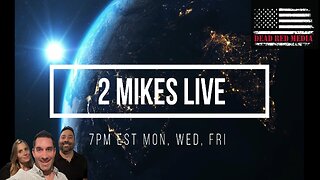Premium Only Content

Demystifying ISF Filing: Navigating Controlled Goods and Compliance
ISF Filer || isf@isffiler.com || 858-280-9374 || www.isffiler.com
Welcome back to our channel! Today, we will be discussing the Importer Security Filing (ISF) requirements for controlled goods. The ISF filing is a mandate set by the US Customs and Border Protection (CBP) agency that requires importers or their authorized agents to submit specific information about their cargo before it is loaded onto a vessel bound for the United States. This filing plays a crucial role in enhancing border security by allowing the CBP to assess potential security risks associated with imported goods.
There are two types of ISF filings: the 10+2 and the 5+2. The 10+2 filing requires importers to provide a total of twelve data elements, including shipper and consignee information, commodity HTS codes, and container stuffing location. The 5+2 filing is designed for shipments transported via foreign trade zones (FTZs) or international In-Transit programs.
Controlled goods are commodities that are subject to certain regulations, restrictions, or governmental agency requirements. Examples of controlled goods include firearms, hazardous materials, and agricultural products. Importers of controlled goods must ensure compliance with both ISF filing requirements and any additional regulations specific to the controlled goods category.
To determine if your goods fall under the category of controlled goods, you should consult resources such as the Harmonized Tariff Schedule (HTS) codes, Customs and Border Protection regulations, or specific government agency requirements. It is crucial to identify any additional filings or permits that may be necessary for the importation of controlled goods as part of the ISF filing process.
Customs Brokers play a crucial role in the ISF filing process. These licensed professionals specialize in customs regulations and procedures. Hiring a reputable Customs Broker ensures that your ISF filings are accurate, complete, and submitted on time. They can guide you through the complexities of the customs process, including the requirements for controlled goods.
Non-compliance with the ISF filing requirements can lead to severe consequences. The CBP may issue penalties, delay the release of goods, or even refuse entry into the United States. These consequences can result in significant financial and logistical setbacks for importers. Therefore, it is essential to understand and comply with all ISF filing requirements, especially when dealing with controlled goods.
In conclusion, understanding the ISF filing requirements for controlled goods is essential for importers navigating the complexities of international trade. By complying with these requirements, importers can ensure the smooth movement of their goods while maintaining security at the borders. Thank you for watching, and make sure to subscribe to our channel for more informative videos on customs brokerage.
#usimportbond
#isfcustomsbroker
#uscustomsclearing
#isfentry
Video Disclaimer Here: This video is intended for educational purposes and has no affiliation with US government entities.
00:33 What is ISF and why is it important?
01:02 Types of ISF filings
01:30 Understanding controlled goods
01:53 How to determine if your goods are
02:40 Consequences of non-compliance
-
 1:26:05
1:26:05
Glenn Greenwald
3 hours agoGOP Senators Demand Tulsi Support Domestic Surveillance To Be Confirmed; Group Tracks IDF War Criminals Around The World; System Pupdate: Pointer's Determination To Survive | SYSTEM UPDATE #387
8.86K9 -

Dr Disrespect
9 hours ago🔴LIVE - DR DISRESPECT - DELTA FORCE - INTENSE SITUATIONS ONLY!
171K23 -
 4:01:30
4:01:30
Nerdrotic
6 hours ago $19.35 earnedHollywood National DISASTER! Studios Terrified, Star Wars FAIL | Friday Night Tights 336 w Raz0rfist
85.2K27 -
 LIVE
LIVE
Edge of Wonder
5 hours agoLA Fires: Biblical Inferno as Hollywood Burned Down
828 watching -
 12:35
12:35
China Uncensored
3 hours agoHas the Coverup Already Begun?
14.1K20 -
 1:09:12
1:09:12
The Big Mig™
7 hours agoLet’s Talk Music “Karmageddon” w/ Iyah May
1.11K6 -
 1:00:22
1:00:22
Sarah Westall
2 hours agoLoss of Confidence in the Medical System, Real Facts and Data w/ Dr. Michael Schwartz
9772 -
 55:08
55:08
LFA TV
1 day agoThe Cause of ‘Natural’ Disasters | TRUMPET DAILY 1.10.25 7pm
3.43K4 -
 LIVE
LIVE
2 MIKES LIVE
2 hours ago2 MIKES LIVE #165 Open Mike Friday with Special Surprise Guests!
184 watching -
 1:01:18
1:01:18
PMG
1 day ago $0.62 earnedIs the UK Grooming Issue Alive in America & How Are Those DEI Fire Policies Working in CA?
9.48K3